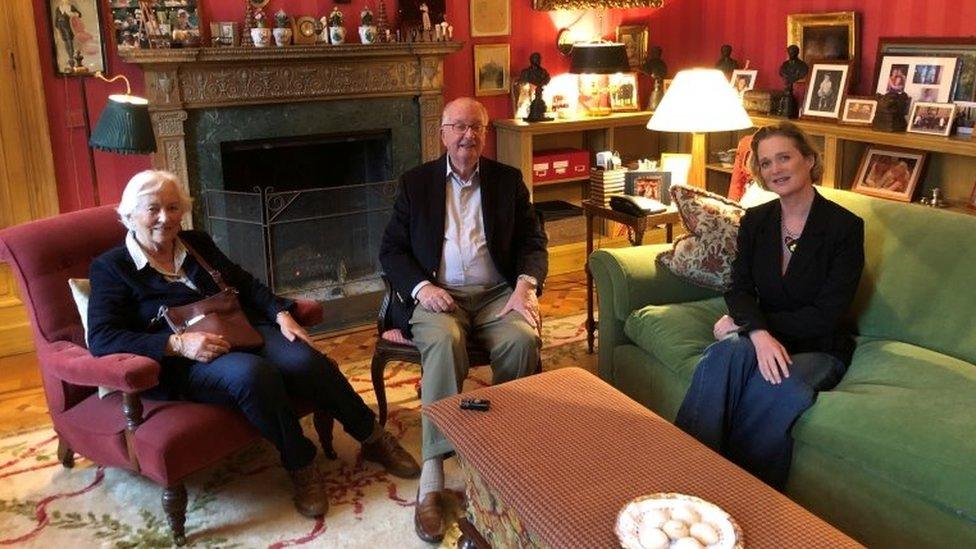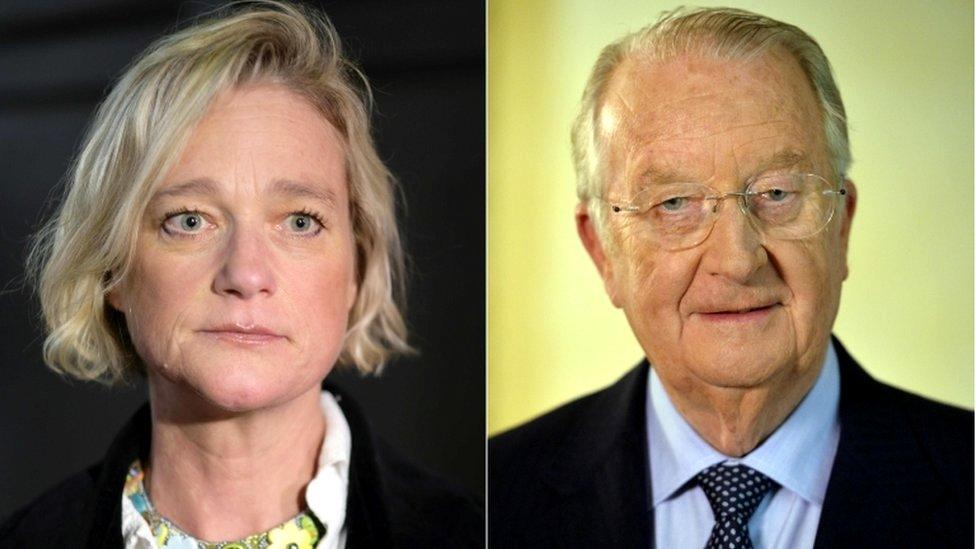Belgium's ex-king meets daughter after paternity battle
- Published

The former king and his wife met Delphine on Sunday
Belgium's former King Albert has met his daughter Princess Delphine, following a legal battle over her status as his daughter.
Albert admitted paternity in January after fighting the claim for more than a decade.
Delphine, 52, is the child of an 18-year affair Albert had with a baroness before he was king.
An image posted online shows the former Belgian king with Delphine at his castle in Brussels.
A statement from Albert, his wife Paola and Princess Delphine said they met on Sunday and were beginning a "new chapter".
"After the turmoil, suffering and injury, it is time for forgiveness, healing and reconciliation. Together we decided to take this new path. This will take patience and effort, but we are determined," the statement said.
Delphine first alleged on the record in 2005 that Albert was her biological father but it was not until he abdicated in 2013 - when he lost immunity to prosecution - that she opened court proceedings.
The 86-year-old had resisted court orders to undergo DNA testing until he was facing fines of €5,000 (£4,533) per day for refusing to do so.
In January, he announced that he accepted her as his fourth child after he had "learnt the results of the DNA tests".
Under the ruling, Delphine and her two children can use the surname of her father, Saxe-Cobourg.
She will also be entitled to receive an inheritance after Albert's death, along with his three other children - Prince Laurent, Princess Astrid and Philippe, the current king.
Delphine met King Philippe earlier this month. They enjoyed a "warm encounter", the royal family's official Facebook account said.
Belgium has a constitutional monarchy in which the king plays a largely ceremonial role.

Who is King Albert II?
Born in 1934 as second in line to the throne
Married Italian Donna Paola Ruffo di Calabria in 1959
The couple have two sons and a daughter
Became king in August 1993 following the death of his older brother, King Baudouin
With his constitutional role, stepped in during country's 2010-2011 political stalemate
Served as monarch for two decades until his 2013 abdication
Lost his immunity held as king after abdication
- Published1 October 2020

- Published15 October 2020
